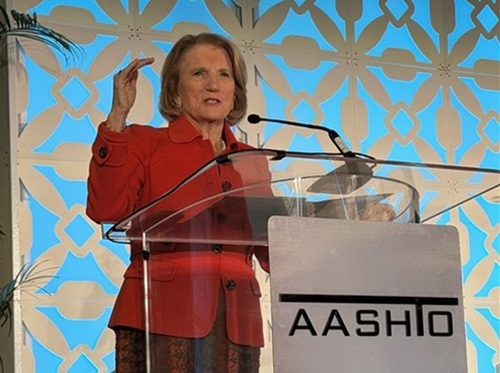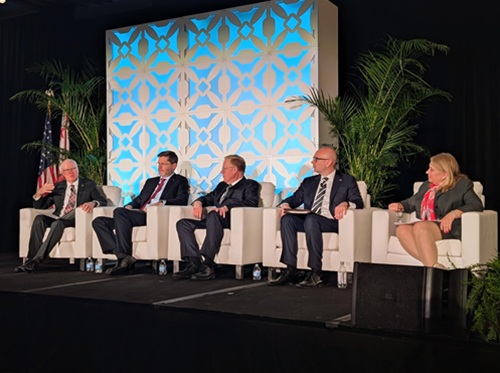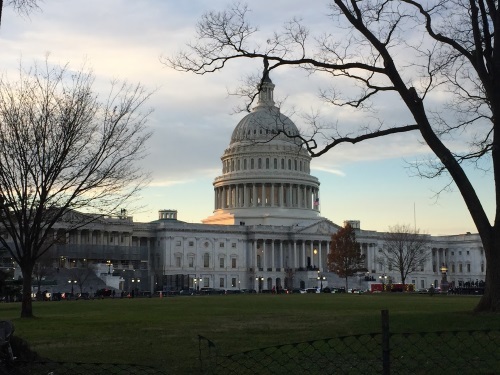On December 3, bipartisan leadership of the House of Representatives Committee on Transportation and Infrastructure and the Senate Committee on Environment and Public Works reached a final agreement on the Thomas R. Carper Water Resources Development Act of 2024, or WRDA; named after Sen. Tom Carper (D-DE), the outgoing EPW chairman.
[Above photo by AASHTO]
WRDA is biennial legislation that authorizes the U.S. Army Corps of Engineers’ Civil Works Program to carry out projects to improve the nation’s ports and harbors, inland waterway navigation, flood and storm protection, and other aspects of America’s resources infrastructure.
The final version of WRDA follows negotiations over recent months to reconcile House- and Senate-passed versions of the legislation earlier this year. This is the sixth consecutive Congress that has considered a WRDA bill since 2014.

Spearheaded by House T&I Chairman Sam Graves (R-MO), T&I Ranking Member Rick Larsen (D-WA), EPW Chairman Carper, and EPW Ranking Member Shelley Moore Capito (R-WV), the bill contains several crucial provisions for state departments of transportation.
According to analysis by the American Association of State Highway and Transportation Officials, the proposed legislation includes the Fiscally Responsible Highway Funding Act of 2024, which makes key changes to the Transportation Infrastructure Finance and Innovation Act or TIFIA that provides loans for major transportation projects.
Now part of WRDA, the bill transfers $1.8 billion of unused TIFIA funds to the flexible Surface Transportation Block Grant Program or STBGP that supports state and local transportation projects, while also aiming to transfer 75 percent of any future unused amounts from the $250 million provided to TIFIA in each of FY 2025 and FY 2026.
In addition to providing additional STBGP funding that are in high demand throughout the country, this provision will permanently reduce future August Redistribution amounts by $1.8 billion – providing more upfront federal highway dollars to states and relieving pressure at the end of each fiscal year.
AASHTO’s analysis also noted that the WRDA bill includes key provisions based on several water policy recommendations the organization developed in 2023. They include:
- Increasing the maximum depth for deepening harbor channels from 50 feet to 55 feet with regard to determining the federal cost share both for a construction project and for operations and maintenance dredging projects.
- Increasing General Fund support for inland waterway projects for the costs of construction.
- Supporting beneficial use of dredged materials to facilitate dredging projects and provide key supports for beach nourishment projects and other coastal management needs to drive infrastructure resiliency.
- Calling for developing and implementing a framework for integrating, sharing, and using water data for the purpose of improving water resources management.
Congress is pushing to advance the bill quickly, with plans to move it through the House using a suspension of the rules. Lawmakers are also aiming for unanimous consent in the Senate before the current session concludes later this month.
 Top Stories
Top Stories
Congressional Leaders Detail Key Transportation Priorities
February 26, 2026 Top Stories
Top Stories

